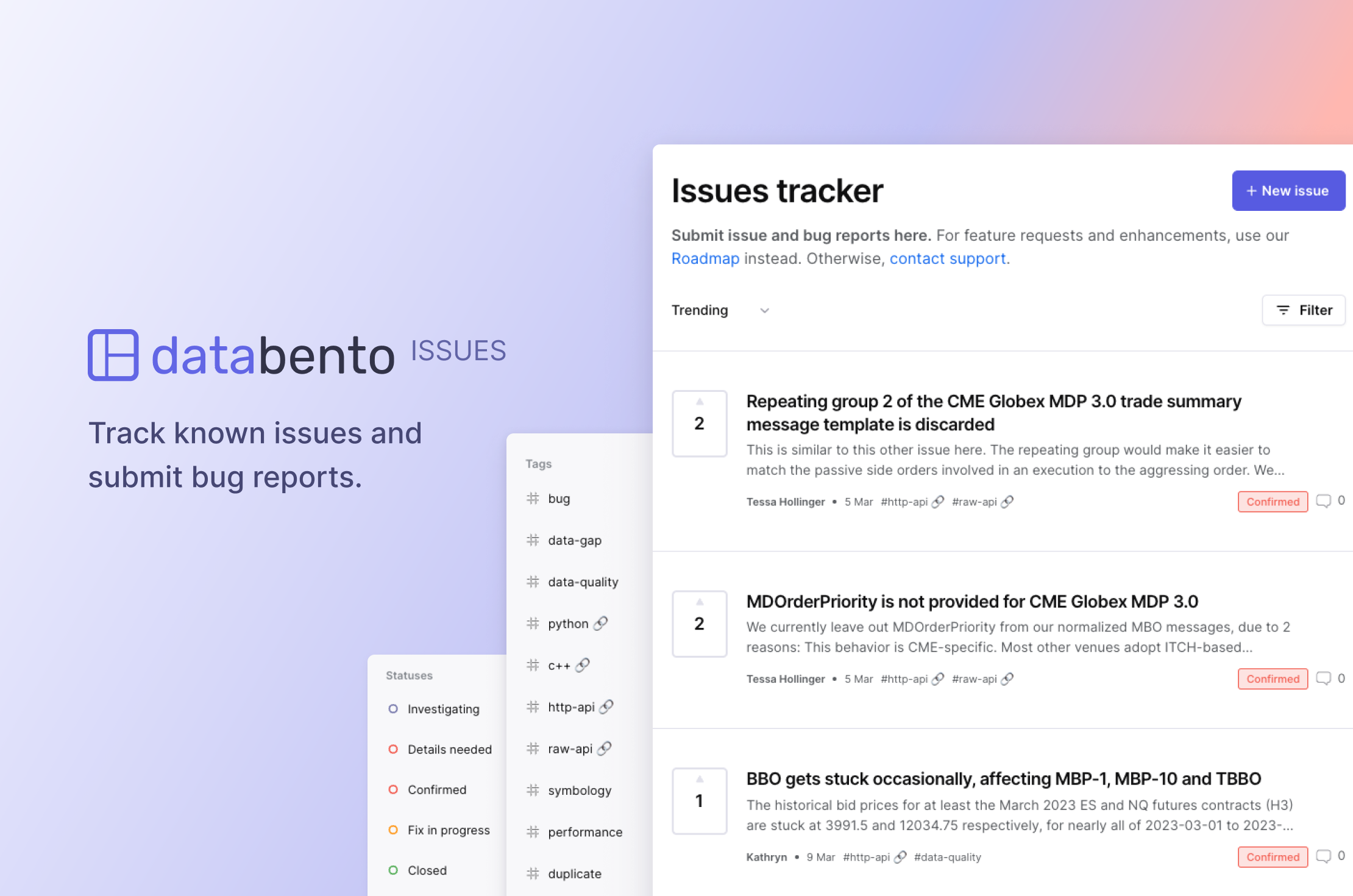Issue report guidelines

What is a valid issue?
Our public issue tracker at issues.databento.com tracks any kind of unexpected behavior. This includes software bugs or problems with data integrity, such as gaps and missing data. It also includes erroneous documentation or unintended behavior on the Databento portal.
If you're just experiencing difficulty understanding a working feature or existing documentation, you may want to contact support instead.
Where should I submit an issue report?
- Always use our public issue tracker at issues.databento.com instead of GitHub issues. We have multiple APIs and client libraries, with support for multiple programming languages and package managers. Some issues involve internal parts of Databento or our main portal that are not open-sourced on GitHub. To make it easy for everyone to find issues in one place, please use this centralized issue tracker instead of GitHub issues.
- If your issue has the potential to be resolved immediately, contact support. We prioritize chat support tickets equally as issues opened here. However, opening an issue report here has the benefit of making it easier for you to subscribe to updates regarding any long-running issues. Our support team may open a public issue report on this issue tracker, after removing any private details, especially if we think that it affects all users or that it will remain a long-running issue that cannot be resolved immediately.
- If you just need integration or onboarding help, contact support.
If you want to track your issue and subscribe to updates for it, use our public issue tracker at issues.databento.com. This typically applies to long-running issues that cannot be resolved immediately, such as data gaps.
- If you prefer to keep the issue details private, contact support. If you believe that reporting an issue will leak proprietary IP or valuable implementation details, contact support instead.
What do the tags mean?
- #bug - A feature is not working as intended.
- #data-gap - Data is missing.
- #data-quality - Data integrity is questionable.
- #python - Python client library.
- #c++ - C++ Client library.
- #http-api - HTTP API for our historical service.
- #raw-api - Raw API for our live service.
- #symbology - Symbology resolution and mapping issues.
- #performance - Slow requests and code paths. Latency, bandwidth, or downtime issues.
- #duplicate - Another issue report for this already exists.
- #invalid - This doesn't seem like a valid issue.
- #wontfix - This will not be worked on.
- #portal - Unexpected behavior on user portal at databento.com.
- #docs - Incorrect or outdated documentation at docs.databento.com.
What do the statuses mean?
- Investigating - We have seen this issue report and are investigating the problem. At this stage, the issue has not been replicated or confirmed.
- Details needed - We have reviewed this issue report and investigated it, but more details are needed before we can replicate or confirm it.
- Confirmed - The issue has been replicated and we confirm that it is a valid. In other words, this has become a known issue.
- Fix in progress - This is a known issue that we're currently developing a fix for.
- Closed - The issue is closed. It has either been resolved or it is in #invalid or #dontfix state.
8